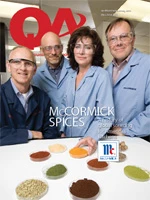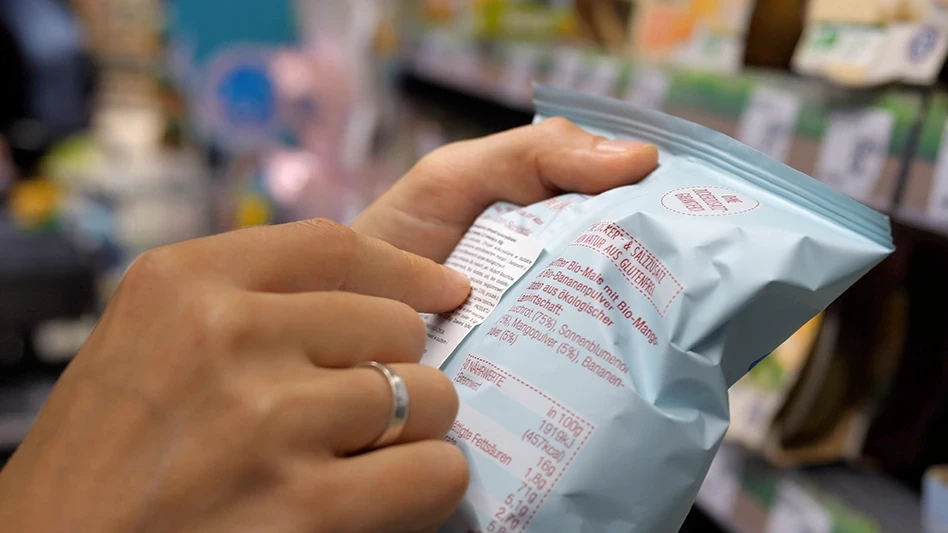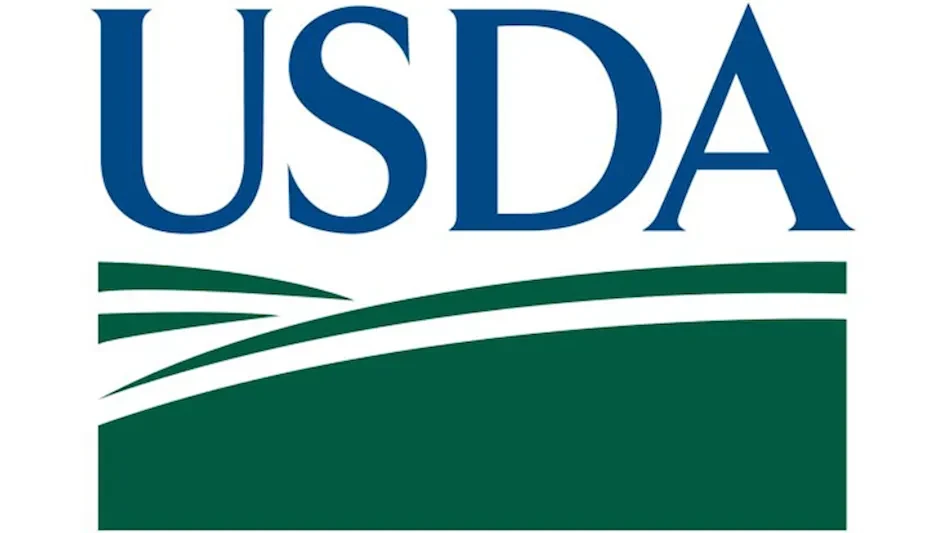USDA Food Safety Discovery Zone Tours U.S.
WASHINGTON—In May, the U.S. Department of Agriculture (USDA) launched the USDA Food Safety Discovery Zone, a 40-foot-long interactive, hands-on food safety learning experience bringing food safety information to towns and cities across the U.S.
The educational center on wheels is designed to improve public food safety awareness and behavior, with a goal to prevent foodborne illness by emphasizing the USDA’s Be Food Safe messages.
"From the very beginning, this Administration has made food safety a top priority and today we are launching an exciting new tool to promote safe food handling practices," said USDA Deputy Under Secretary for Food Safety Jerold Mande. "Promoting safe food handling practices is a key component of our effort to reduce foodborne illness."
Many of the Discovery Zone learning stations feature messages from Be Food Safe, emphasizing four key lessons:
- Clean – Wash hands and surfaces often.
- Separate – Don’t cross-contaminate. Keep raw meat and poultry apart from ready-to-eat foods.
- Cook – Always use a food thermometer to ensure foods are safely cooked.
- Chill – Promptly refrigerate or freeze foods.
The Food Safety Discovery Zone was unveiled during Public Service Recognition Week on the National Mall in Washington, D.C. After an initial appearance in Washington, it hit the road to spend nine months a year traveling the U.S. More information, including a schedule of tour stops, is available at www.fsis.usda.gov/fsdiscoveryzone.
*****
Researchers Find Few High-Quality Studies
on Food Allergies
There’s a lack of consistent information about the prevalence, diagnosis and treatment of food allergies, according to researchers who reviewed data from 72 studies.
The articles looked at allergies to cow’s milk, hen’s eggs, peanuts, tree nuts, fish and shellfish, which account for more than 50 percent of all food allergies.
The review authors found that food allergies affect between one and ten percent of the U.S. population, but it’s not clear whether the prevalence of food allergies is increasing.
While food challenge, skin-prick and blood-serum testing all play a role in diagnosing food allergies, no single test has sufficient ease of use, sensitivity or specificity to be recommended over other tests, said Dr. Jennifer Schneider Chafen, of the VA Palo Alto Healthcare System and Stanford University School of Medicine, and colleagues.
Elimination diets are a mainstay of food allergy therapy, but the researchers identified only one randomized controlled trial (RCT) —the gold-standard of evidence—of an elimination diet.
"Many authorities would consider RCTs of elimination diets for serious life-threatening food allergy reactions unnecessary and unethical; however, it should be recognized that such studies are generally lacking for other potential food [allergy] conditions," the researchers wrote.
In addition, there’s inadequate research on immunotherapy, the use of hydrolyzed formula to prevent cow’s milk allergy in high-risk infants, or the use of probiotics (beneficial bacteria) in conjunction with breast-feeding or hypoallergenic formula to prevent food allergy, according to the report published in the May 12 issue of the Journal of the American Medical Association.
"This systematic review of food allergies found that the evidence on the prevalence, diagnosis, management and prevention of food allergies is voluminous, diffuse and critically limited by the lack of uniformity for the diagnosis of a food allergy, severely limiting conclusions about best practices for management and prevention," the researchers concluded.
Source: HealthDay News
*****
World Bank to Help Improve China
Food Safety
The World Bank’s Board of Executive Directors approved a $100 million loan to the People’s Republic of China to support its efforts to enhance food safety and meet increasing demand for higher quality and safer food by the Chinese population.
The Government of China has made food safety a top priority in recent years and is taking clear actions to upgrade its food safety system, noted a World Bank statement. Current actions include the Jilin Agricultural Product Quality and Safety Project. Jilin Province in northeast China is a major agriculture producer and supplier to the country. The project aims to help Jilin Province improve its product quality and reduce safety risks through introducing good agricultural practices, improving the implementation of agricultural product safety related regulations, and strengthening the agricultural product safety monitoring system.
The loan will finance 70 percent of the total project investment. It is the first food safety project that the World Bank has supported in China, and is the largest food safety project ever financed by the World Bank. Development of the project is based on the Bank’s 2006 study, "China’s Compliance with Food Safety Requirements for Fruits and Vegetables" a 2008 policy note, "Food Safety in China."
*****
Food Safety Concerns Decrease in Consumers
Nine of ten consumers believe food-related recalls are on the rise or on par, but fewer seem to be anxious about the recalls, according to Deloitte’s 2010 Consumer Food Safety Survey as compared with findings from its 2008 survey. The 2010 results show:
- 65 percent of consumers are concerned about the quality of the food they eat, a 17 percent decrease from 2008.
- 75 percent feel that manufacturers/food companies are responsible for communicating recall information; 73 percent said it is the responsiblity of the government; 53 percent said retailers; and 51 percent, the media.
- More Americans are reading labels, with 53 percent stating that they frequently or always read ingredient lists on unfamiliar food.
*****
DuPont Hires Raj Saran as
Principal Research Investigator
WILMINGTON, Del.—DuPont Professional Products has hired Raj Saran as a principal research investigator and urban entomologist for its Product Support & Renewal group at the Stine-Haskell Research Center. Saran has more than 10 years experience in the insect pest management industry and numerous accolades, including a national award and two fellowships. Saran earned his B.S. in Agriculture and M.S. in Crop Entomology from J.N.K.V.V. University in India, his MBA from the Asian Institute of Technology in Bangkok, his M.S. in Urban Entomology from the University of Nebraska and his Ph.D. in Entomology from the University of California at Riverside.

Explore the June 2010 Issue
Check out more from this issue and find your next story to read.
Latest from Quality Assurance & Food Safety
- FSIS to Host Virtual Public Meetings on Salmonella Framework
- Climate-Smart Soybeans Enter U.S. Market
- Yoran Imaging Introduces Thermal Imaging-Enabled System for Induction Seal Inspection and Analysis
- GDT Highlights Food Safety Solutions for Food Processing and Packaging Facilities
- FSIS Issues Public Health Alert for Ineligible Beef Tallow Products Imported from Mexico
- Wolverine Packing Co. Recalls Ground Beef Products Due to Possible E. Coli Contamination
- McDonald’s USA, Syngenta and Lopez Foods Collaborate to Help Produce Beef More Sustainably
- Divert and PG&E Announce Interconnection in California to Address Wasted Food Crisis





